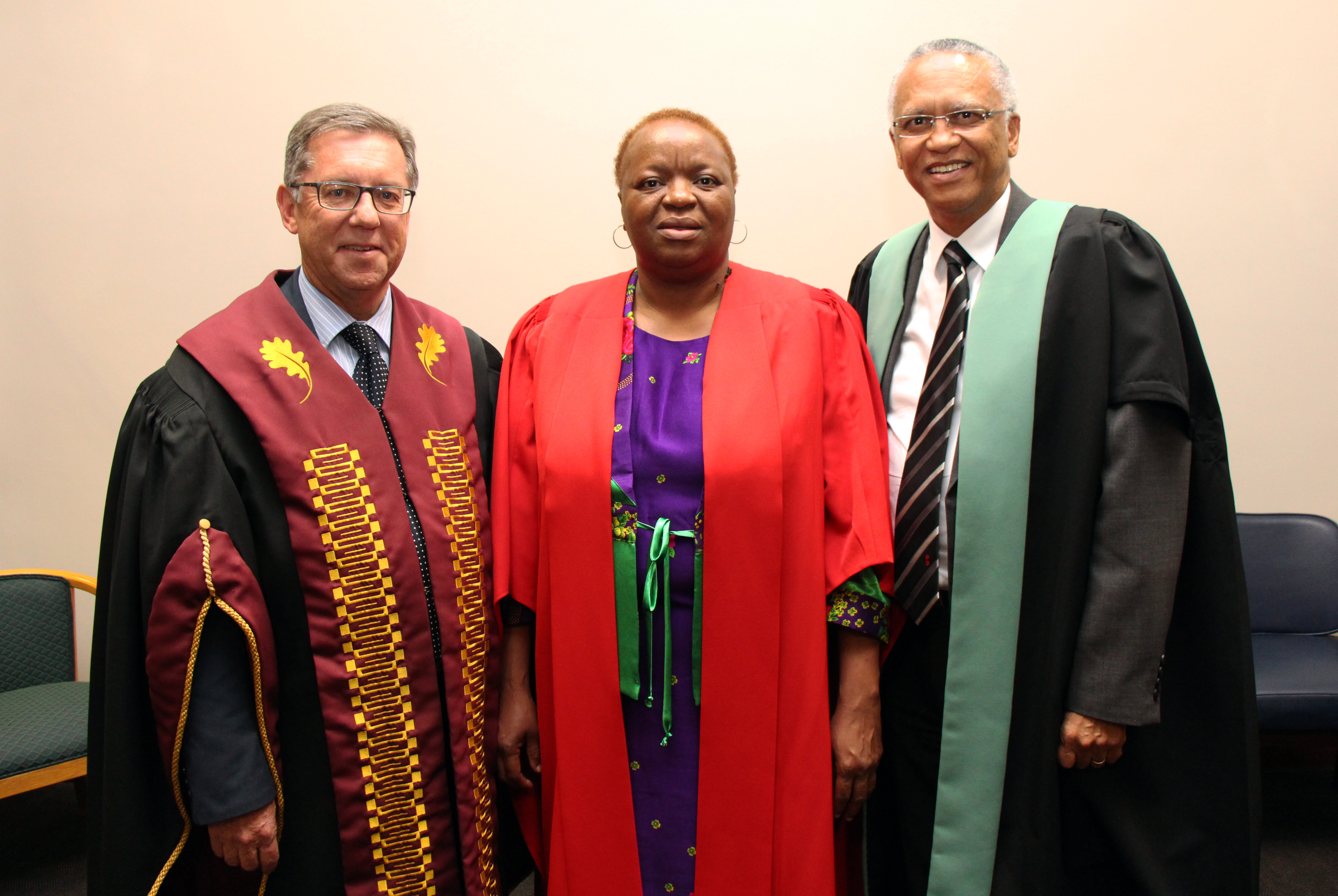
Indigenous foods can contribute to food security
Indigenous foods can contribute to food security, the eradication of hunger and poverty, as well as the prevention of diseases in Africa, said Prof Xikombiso Mbhenyane of the Division of Human Nutrition at Stellenbosch University (SU) in her inaugural lecture on Tuesday (25 October 2016).
The event took place in the Education Building on SU's Tygerberg Campus.
Mbhenyane said indigenous foods (indigenous fruits, vegetables, tubers and roots) can play a major role in enhancing the quality of diets and improving food and nutrition security.
"There is sufficient evidence from studies from South Africa and the rest of the world that indigenous foods are consumed by many households, especially in areas where they are available, and thus can play an important role in alleviating food insecurity."
"Many rural communities have access to traditional crops that are rich in micronutrients, which are likely to serve as a long-term strategy to eliminate food insecurity."
"The diversity of indigenous crops has the potential to augment the nutrient composition of family diets and may contribute to household food security and the alleviation of hidden hunger which is a result of a lack of dietary diversity, usually linked to poor consumption of fruit and vegetables in general."
Mbhenyane said underutilised indigenous crops provide an opportunity for incorporation of alternative food sources into rural food systems.

"It is recognised that indigenous foods and dietary diversity within an ecosystem can be powerful sources of nutrients and thus are conducive to good health."
According to Mbhenyane food insecurity is a major issue in developing countries, including South Africa where it can lead to hunger, malnutrition, negative effects on health and quality of life, and impacts on social and economic development.
She said many South Africans are either food insecure or at risk of hunger.
"More recently, the South African National Health and Nutrition Examination Survey reported only 45.6% of the South African population to be food secure. The largest percentage of participants who experienced food insecurity was found in urban informal (32.4%) and rural formal (37.0%) localities."
Addressing food insecurity will require policies that acknowledge the potential nutritive value of indigenous foods, especially those harvested in impoverished communities, Mbhenyane said.
Mbhenyane said the use of indigenous foods has declined due to the nonavailability thereof in modern and industrialised markets and a lack of investment in research and development. She added that there is not enough information available regarding their nutritional value.
Mbhenyane was, however, optimistic about global and national efforts to alleviate food insecurity and the role that indigenous foods can play in this regard.
Among these are the second of the United Nation's Sustainable Development Goals that highlights the importance of food and nutrition security, the new South African National Policy on Food and Nutrition Security, and the Agricultural Research Council which has been promoting indigenous foods for food and nutrition security through research since 1994.
Mbhenyane said the Policy on Food and Nutrition Security proposes the promotion of indigenous crops for production and consumption, which contain more micronutrients than conventional vegetables such as cabbage and lettuce.
"Increased consumption of these indigenous vegetables will lead to greater demand, increased production and creation of markets and will thus enhance rural economies."
Mbhenyane emphasised the need for a resilient food and nutrition system that involves people as consumers and communities as central focus and also promotes and preserves the utilisation of indigenous food.
Good nutritional status can only be realised and sustained when individuals within families and communities are food secure, she added.
- Photo 1: Pixabay
- Photo 2: Proff Eugene Cloete, Vise-Rector: Research, Innovation and Postgraduate Studies, Xikombiso Mbhenyane, and Jimmy Volmink, Dean of the Faculty of Medicine and Health Sciences, at the inaugural lecture.
